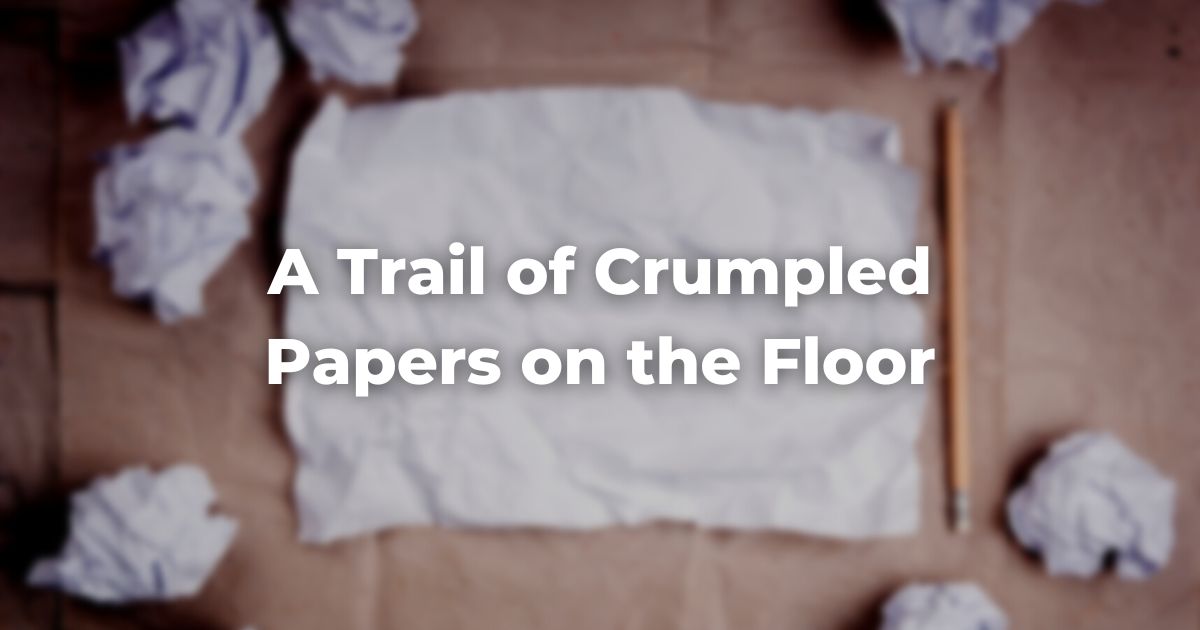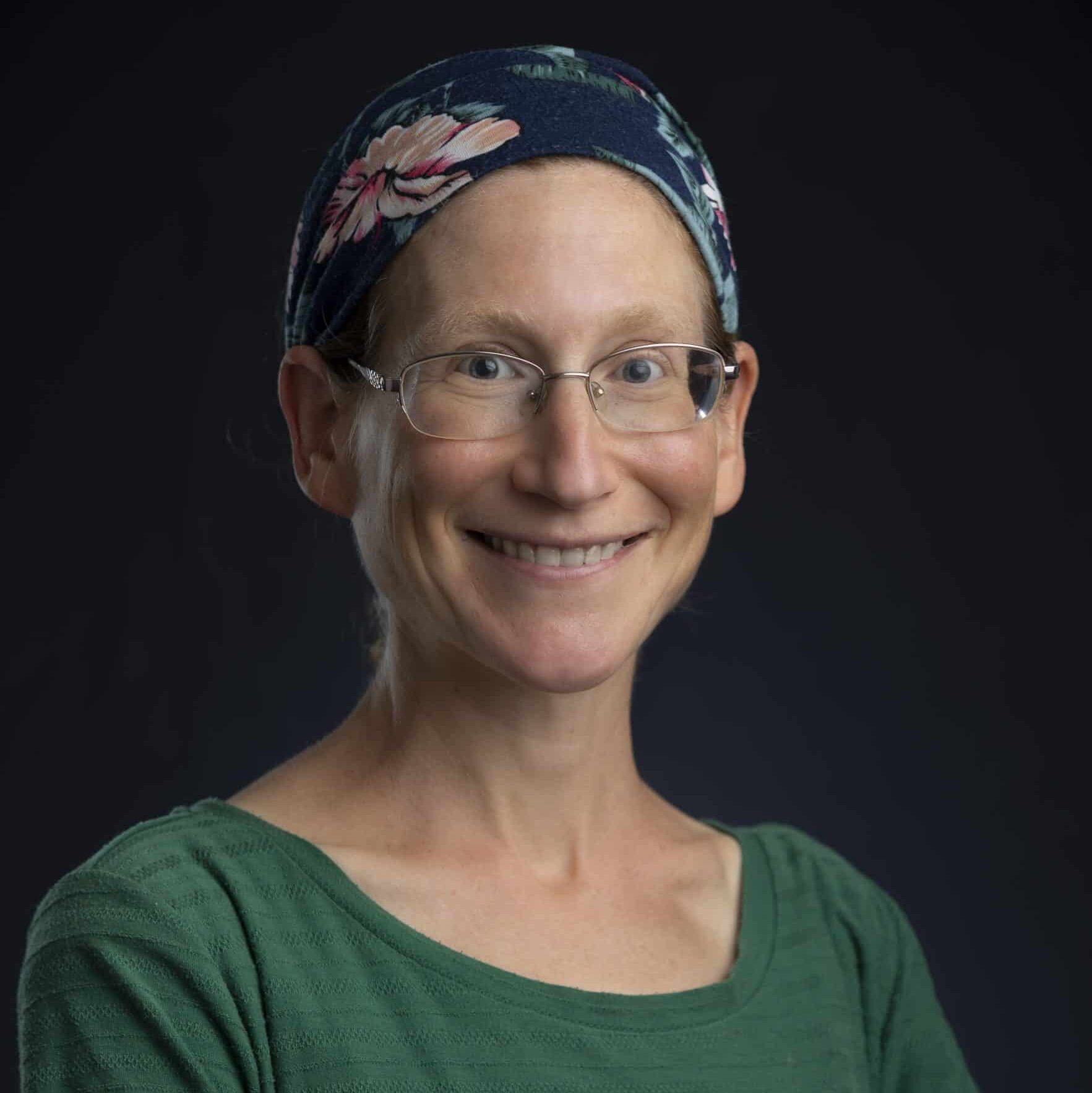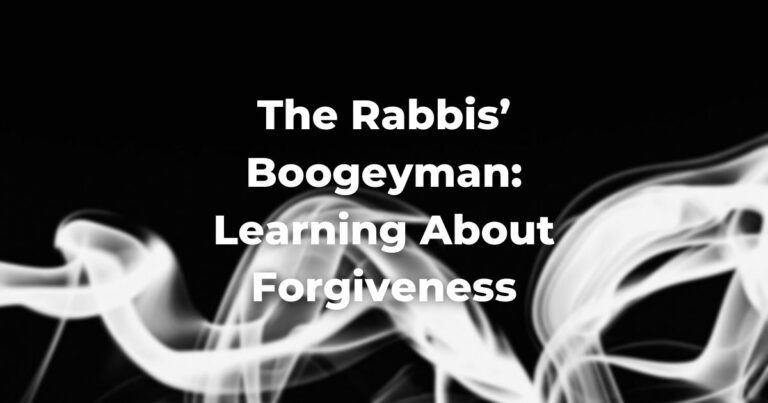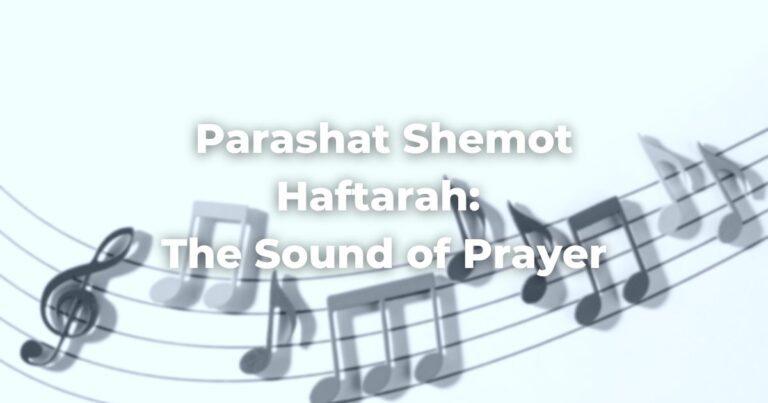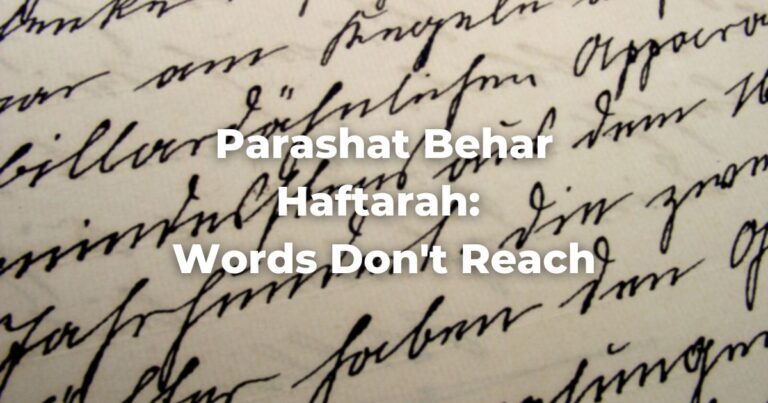My daughter is an incorrigible perfectionist. Whenever she asks to draw a picture, I know to bring her several pieces of paper.
One page will not suffice, because inevitably she will make a mistake and insist on starting all over again, even if I offer to show her how to add another hump to make a P into a B, or how to enlarge the shape she is coloring so that it won’t matter that she drew outside the lines.
She insists that her work be perfect, and she will start over and over again until she gets it right. I try to be patient, but I’m hoping that someday she will learn the lesson of our parashah – not the lesson the midrashic rabbis glean, but the lesson, albeit somewhat heretical, that the simple reading of the text suggests.
The midrashic rabbis read Noah’s flood as a story of the failure of human repentance.
God informed Noah of the plan to “put an end to all flesh” (Genesis 6:13) and Noah immediately tried to rally the people to repent. According to the TalmudReferring to one of two collections, the Jerusalem and Babylonian Talmuds, edited in the 6th century, that contains hundreds of years of commentary, discussion, and exploration of the ideas in the Mishnah. One could describe it as Mishnah + Gemara = Talmud Read more in tractate Sanhedrin (108b), which discusses the generation of the flood as being so sinful that they are denied a place in the world to come, Noah rebuked the people of his generation, speaking to them words that were “harsh as torches.”
But Noah’s fire-and-brimstone sermonizing was only met with contempt. The people told Noah that if God were to bring a flood of fire, they would protect themselves with the fireproof alita – a term that refers, according to some commentators, to the salamander, which was believed to have the ability to extinguish fire with its blood.
If God were to flood the oceans, they said, they would cover the earth with iron plates to prevent the water levels from rising. And if God were to bring a downpour from the heavens, they insisted they had some sort of sponge that would absorb the waters. The people, haughtily convinced of their invincibility, had an answer to everything.
The midrashThis word is used in two ways, as both a concept and a literature. As a concept, midrash is the expansive interpretation of biblical texts. The term is used to describe the practice of rabbinic interpretation. As a text, it refers to specific collections of interpretations, particularly from the third to ninth centuries in the Land of Israel and Babylonia. Plural: Midrashim
Read more in the Tanchuma (Noah 7:5) adds that God, too, urged the people to repent before resorting to flooding the earth. God gave the people 120 years to mend their ways, and only when they failed to do so did God instruct Noah to “make yourself an ark of gopher wood” (6:14).
At that point, Noah planted cedar trees and began watering them so they would grow tall.
When the people questioned what he was doing, he informed them that a flood was coming, and they ought to repent. The people continued to mock him, even as Noah cut down the trees and smoothed them into logs to make an ark.
Since they still didn’t repent by the time the ark was finished, God brought the flood. The Talmud teaches that a person should always be “pliant like a reed and not hard like a cedar” (Taanit 20a) – but the people were firm and unyielding in their refusal to repent, and so God cut them down like the cedar trees that Noah felled to make the ark.
In spite of all this emphasis in the Talmud and Midrash on the failure of human repentance, a simple reading of the biblical text suggests that our parashah is really about divine repentance.
Over the course of the story of the flood, God undergoes a significant transformation.
At first, when God sees the wickedness of humanity, God regrets having created the world:
“The Lord saw how great was man’s wickedness on earth, and how the devisings of man’s mind are evil all the time. And the Lord regretted that He had made man on earth, and His heart was saddened. The Lord said: I will blot out from the earth the men whom I created” (Genesis 6:5-7).
God, upon seeing that His creatures fail to live up to His expectations, resolves to start all over again. He will wipe out humanity and create the world anew.
A midrash in Breishit Rabbah (Bereshit Rabbah 3:9) teaches that initially, before creating the world as we know it, God “created worlds and then destroyed them – He said, This one pleases Me, those others do not please me.” With Noah’s flood, God resolved to destroy yet another world and start over, except that this time, something changes – not in the world, but in God.
By the end of the flood story, it is not the creation of humanity that God regrets, but rather their destruction:
“And the Lord said in His heart: Never again will I doom the earth because of man, since the devisings of man’s mind are evil from his youth, nor will I ever again destroy every living human beings as I have done” (Genesis 9:21).
Although the people do not undergo any change of heart—the devisings of man’s mind are still evil, just as they were on the eve of the flood— God has changed. And while it may seem heretical to speak of God’s change of heart, this does seem to be the simple reading of the text: God realizes that destroying the world and starting over again is not a way of moving forwards.
As God comes to appreciate, the problem was not creating human beings, but having unrealistic expectations of them.
Human beings have an evil impulse, but the world need not be destroyed on account of it. Following this divine realization, God resolves that the world will continue in spite of humanity’s evil impulse: “So long as the earth endures, seedtime and harvest, cold and heat, summer and winter, day and night shall not cease” (Genesis 8:22).
Unlike the people, who fail to mend their ways and undergo a change of heart, God manages to do just that. Perhaps it is for this reason that we quote from the end of the flood story each year during Musaf on Rosh Hashanah, when the world hangs in judgement, as part of the verses of remembrance (Zichronot) – we pray not just that God will have a change of heart and forgive us, but also that we will learn, from God, how to change our own hearts and mend our ways.
I hope that someday my daughter will undergo a similar change of heart.
I hope she will realize that not every drawing has to be perfect, nor would we want it to be. Her trail of crumpled papers on the floor, like the many worlds that God created and destroyed, are not the best way forwards.
Just as mutations—mistakes in replicating the genetic code—fuel evolution, our mistakes can further our development and nourish our creativity.
We do not plant trees in order to fell them. We strive not for perfection, but for the ability to work with our mistakes – to tend, prune, and watch them grow in all their gnarled and twisted beauty.
See more: Parashat Noach
Originally posted as part of the Conservative Yeshiva at the Fuchsberg Jerusalem Center’s Torah Sparks. Support TorahRefers to the first five books of the Hebrew Bible, the Tanakh, also called the Five Books of Moses, Pentateuch or the Hebrew equivalent, Humash. This is also called the Written Torah. The term may also refer to teachings that expound on Jewish tradition. Read more learning from the Fuchsberg Jerusalem Center/Conservative Yeshiva for leaders and seekers around the world here.
Authors
-

Ilana Kurshan teaches Talmud at the CY. She is the author of If All the Seas Were Ink (St. Martin’s Press, 2017) and Why is This Night Different From All Other Nights (Schocken, 2005). She has a degree in History of Science from Harvard and in English literature from Cambridge, and has worked in literary publishing both in New York and in Jerusalem – as a translator, a foreign rights agent, and as the Books Editor of Lilith Magazine. Since October 2020, Ilana has been a regular contributor to Torah Sparks, FJC’s weekly parashat hashavuah blog.
View all posts -



The Fuchsberg Jerusalem Center (FJC) is a home in the heart of Jerusalem where leaders and seekers can find an authentic place in Jewish tradition to call their own. FJC offers opportunities to study, pray and explore within an egalitarian and inclusive setting, creating multiple pathways for finding personal and communal meaning.
View all posts

